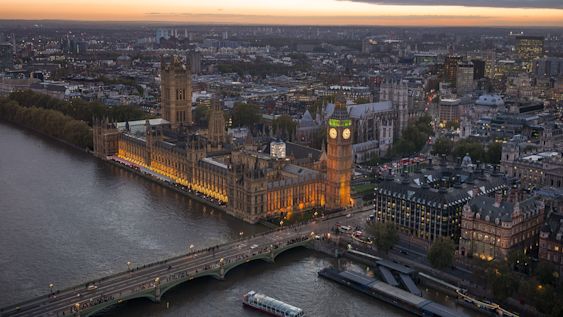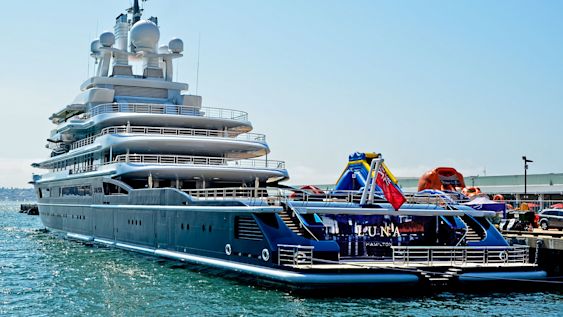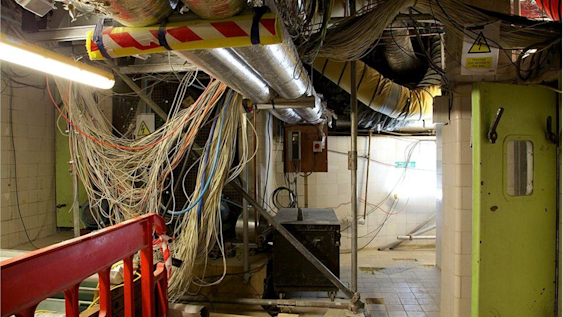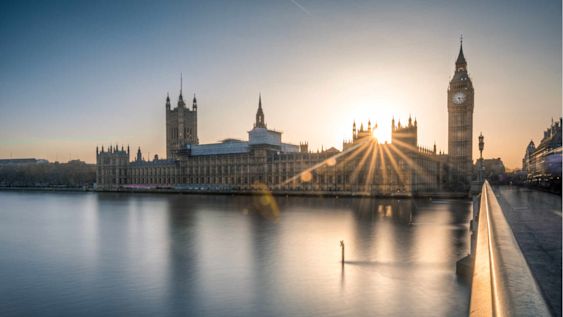
The Independent Group of MPs: will they have disproportionate influence in the House of Commons?
The roles occupied by members of The Independent Group - particularly on select committees, where they retain a number of important posts and command two and a half times as many seats as the Liberal Democrats – could give them more influence than their small, non-party status might normally be expected to accord them.
The recent decisions by 9 Labour and 3 Conservative MPs to defect from their parties bring the total number of independent MPs in the House of Commons to 21, of whom 11 are sitting together as The Independent Group of MPs.
In the immediate aftermath of the defections, a number of commentators have focused on the obstacles that parliamentary rules will pose to The Independent Group (TIG) in terms of participation rights in the Chamber, the allocation of resources and access to information about parliamentary business.
House of Commons rules do give certain privileges to the Official Opposition and the second-largest opposition party which TIG will not enjoy. Holding these positions, Labour and the Scottish National Party (SNP) can choose the subjects for debate on Opposition Days, and their amendments to bills and motions are certain to be called. But these and other privileges are largely enjoyed by the party collectively and exercised by the front bench, not by individual backbench MPs.
Current rules predicated on reflecting party balance in the House would suggest, however, that TIG MPs are unlikely to be represented on Public Bill Committees (PBCs) or to get their amendments selected, and their non-party status may relegate them in the pecking order of contributors to debates, in turn often reducing their speaking time.
However, we do not live in normal political times, and analysis of the role, positions and experience of the 11 founding members of the group suggests that, in practice, some of these rules may not apply as expected, and particularly with a Speaker so committed to ensuring that participation in the Chamber reflects all shades of opinion on the backbenches.
Parliamentary questions and debate: experience and seniority count
Seniority and relevant experience are important factors that are taken into account when the Speaker decides who is called in parliamentary question sessions and in debates, after the conclusion of the front bench contributions. MPs with policy expertise – particularly current and former chairs and members of select committees – are also likely to be called early to speak on relevant subject matters, as will MPs with a specific constituency interest.
On these grounds, the TIG MPs have good reason to expect that they will continue to be called regularly and in a timely way to raise questions and participate in debates. Importantly, TIG includes the Chair of the Health and Social Care Committee, Sarah Wollaston, who also chairs the committee of chairs, the Liaison Committee; and Mike Gapes, the former chair of the Foreign Affairs Committee, on which he continues to sit as an ordinary member. TIG also include several former ministers - Joan Ryan, Anna Soubry and Chris Leslie – of whom the first two are also Privy Counsellors.
Two of the TIG MPs date the start of their parliamentary careers to the 1992 general election; two to the 1997 general election; one to the 2005 general election; five to the 2010 general election; and one to the 2015 general election. With the exception of Heidi Allen, each member of the group thus has almost a decade of parliamentary service or more on which to draw, all of which may also count in their favour.
If the TIG MPs are strategic in the deployment of their interventions, there are plenty of opportunities to participate in the Chamber or Westminster Hall and so raise their profile and press their case without being restricted by privileges that favour the main opposition parties. Backbench Business Committee debate applications, promoting e-petitions, Westminster Hall debates, Ten Minute Rule Bills, adjournment debates, topical questions and urgent questions all present opportunities to make their voice heard. For example, 23 of the 197 urgent questions accepted by the Speaker in this Parliament have been raised by the smaller parties in the Commons, and a further three by independents (two by John Woodcock and one by Frank Field). The Liberal Democrats’ 11 MPs – the same number as TIG’s – have successfully applied for 14 urgent questions so far this session.
Legislative committees: no change
Members of Public Bill Committees (PBCs) and Delegated Legislation Committees (DLCs) are chosen by the Selection Committee, which includes the whips of the three main parties. Backbenchers chosen to serve on a PBC might include Members who have an interest in the subject and spoke in the debate on the Bill at second reading, but most tend to be appointed by the whips because they will support the party line.
There are no independent MPs on the Selection Committee, so there will be no-one to make the case for their inclusion on PBCs. However, two TIG MPs – Mike Gapes and Joan Ryan – currently sit on the Panel of Chairs, which is appointed by the Speaker to chair PBCs and other general committees. Ian Austin, another recent recruit to the ranks of the independents but not a member of TIG, is also on the Panel of Chairs.
Will their absence from legislative committees be a significant problem for the TIG MPs? For the foreseeable future, while they have a statement of values but no clear policy platform, it may not be a cause for concern.
Moreover, at a time when the authority of both front benches is being sorely tested, and when the TIG MPs know that they have allies within their former parties, particularly on Brexit-related matters, it is still possible for them to secure support for amendments to legislation, for example at report stage (or in committee of the whole House, if committee stage is taken in this format rather than in a PBC). Even if not selected by the Speaker, by garnering an array of cross-party signatures such amendments may make an important point and on some occasions force a ministerial response. The same is possible with amendments to non-legislative motions before the House: an amendment can sometimes achieve the Members’ objectives without it actually having to be selected or moved.
Delegated Legislation Committees (DLCs) (which are appointed to consider Statutory Instruments (primarily those subject to the affirmative scrutiny procedure)) also afford an opportunity to the TIG MPs which is missed by a simple focus on the DLC appointment rules. Although only nominated Members can vote in a DLC, any MP can attend and speak. This too can have a valuable impact: on occasion, non-voting Members have raised concerns in a DLC debate that a minister has promised to look at again. Given that MPs cannot amend the Statutory Instruments discussed in these committees, participation in the debates can be as valuable as possessing a formal voting right. The TIG MPs could therefore judiciously intervene in some of these debates where it suits their purpose to highlight issues of concern.
It is worth noting that, even when sitting as party MPs for Labour or the Conservatives, the TIG MPs were very rarely called on to participate in legislative committees. Since the start of this Parliament, only four of the 11 TIG MPs have served on PBCs, and all four instances were in relation to Private Members’ Bills (one of which was Sarah Wollaston’s own bill) rather than government bills. Just four of the TIG MPs have sat on DLCs and a European Committee in this parliamentary session. Chris Leslie alone accounts for two of the five DLCs on which TIG MPs have sat, as well as the sole European Committee. Being unable to participate in legislative committees is therefore unlikely to be an unwelcome shock to the Group.
Select Committees: disproportionate influence?
Critically, the TIG MPs retain an important number of select committee posts, significantly beyond what their share of seats in the House would ordinarily afford them at the start of a Parliament were they a fully constituted party. Possession of these positions will help to nullify any diminution of their influence in other areas of parliamentary activity.
The 11 TIG MPs hold 10 select committee places between them, plus the influential chair of the Liaison Committee. Six of the ten non-TIG independent MPs hold a further seven select committee seats between them. Two of these 17 total independent select committee places are committee chairs, of the Health and Social Care and Work and Pensions committees.
This means that independents chair the same number of select committees as the SNP, the second-largest opposition party, with its 35 MPs. And TIG holds nearly two and a half times as many select committee places as the Liberal Democrats, despite having the same number of MPs.
Although it may not be in the short-term interests of either party to object, both the SNP and the Liberal Democrats could justifiably argue that TIGger MPs, and independents generally, are over-represented on select committees.
Independents now comprise just over one-quarter of the Work and Pensions Select Committee, with three of 11 seats (of which two are held by TIG MPs). The two independent members on the Health and Social Care Committee are also TIG members, as are the two independent members of the Women and Equalities Committee. Other committees with TIG representation are: Foreign Affairs; International Trade; Environment, Food and Rural Affairs; and Arms Export Controls. The recent allocation of policy area resposibilities to each TIG member broadly reflects the select committee involvement of each member of the Group. In addition to Work and Pensions, non-TIG independent MPs also serve on the Committees for: Foreign Affairs; Home Affairs; International Development; Northern Ireland; Public Administration and Constitutional Affairs; and European Scrutiny.
Future fairness?
So, although TIG MPs may not benefit from front bench privileges and rights accorded to the Official Opposition and the third party, there are nonetheless plenty of ways in which they can ensure that their presence is felt in the House. And their select committee strength, combined with the individual reputations of their members, may in time help them outstrip the influence of the smaller parties.
However, if the traditional patterns of party politics continue to fragment, that select committee strength may also prove to be a long-term weakness, for it demonstrates the difficulties of achieving fairness and balance in respect of representation and participation during a Parliament under such circumstances. If TIG were to attract more defectors, bringing with them more select committee chairs and seats, the issue of the imbalance in representation on select committees might become a focus of tension and controversy.
Banner image: The Independent Group of MPs in Nandos, by Chris Leslie MP
Enjoy reading this? Please consider sharing it
Latest

Compendium of Legislative Standards for Delegating Powers in Primary Legislation
The scope and design of the delegation of legislative powers in any Bill affects the long-term balance of power between…Parliament and Government. The House of Lords Delegated Powers and Regulatory Reform Committee (DPRRC) scrutinises all such delegation. This report distils standards for the delegation of powers from 101 DPRRC reports from 2017 to 2021.

Genetically modified organisms: Primary or delegated legislation?
A Statutory Instrument comes into force on 11 April that changes the legal requirements for the release of certain types… of genetically modified plants. Some argue that the changes should have been made by primary, rather than delegated, legislation. Where does the boundary between the two lie?

Constitution and Governance in the UK: Parliament and Legislation
The Brexit process, the pandemic and the approach of the Johnson Government have all tended towards Parliament’s margina…lisation and the accretion of executive power. For UK in a Changing Europe’s report on the constitutional landscape, we show how – in the legislative process and control of public money and executive action, including delegated legislation.

What role does the UK Parliament play in sanctioning an individual? [Video]
Sanctions are imposed on an individual in two stages - by Ministers first making regulations and secondly designating th…e individual, using a power in those regulations. Parliament has a role in the first stage, but not the second.

Written evidence to the House of Commons Public Accounts Committee: the Restorat…ion and Renewal of Parliament
Our submission to the Public Accounts Committee highlighted the financial and practical challenges that MPs face in deci…ding the fate of Parliament’s Restoration and Renewal programme. We particularly questioned the viability of the proposal to continue operating the House of Commons Chamber in the middle of a building site.

Written evidence to the House of Commons European Scrutiny Committee: Retained E…U Law: Where next?
Our submission to the House of Commons European Scrutiny Committee inquiry into retained EU law (REUL) placed the issue…in the context of our Delegated Legislation Review. It discussed REUL’s diversity and amendment; the people and organisations to whom REUL amendment may matter; and parliamentary scrutiny of delegated legislation arising from amending REUL.